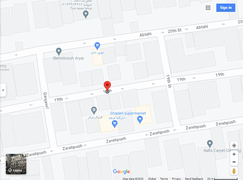Safety and feasibility study of ex vivo expanded allogeneic-NK cells infusion in patients with acute pneumonia caused by COVID-19
Infusion of allogeneic NK cells might be a complementary treatment to boost immune system function in COVID-19 patients. In this project, we focused on COVID-19 patients with low inspiratory capacity (LIC). This project aims to evaluate the feasibility and safety of allogeneic NK cell infusion as an intervention for respiratory viral disease. Methods: A non-blind two arms pilot study was designed and conducted after signing the consent form. Ten matched patients, in terms of vital signs and clinical features, were enrolled in the control and intervention groups.

Abstract
Background: NK cells are the most active innate immune cells in antiviral immunity, which are impaired by SARS-COV2 infection. Infusion of allogeneic NK cells might be a complementary treatment to boost immune system function in COVID-19 patients. In this project, we focused on COVID-19 patients with low inspiratory capacity (LIC). This project aims to evaluate the feasibility and safety of allogeneic NK cell infusion as an intervention for respiratory viral disease.
Methods: A non-blind two arms pilot study was designed and conducted after signing the consent form. Ten matched patients, in terms of vital signs and clinical features, were enrolled in the control and intervention groups. Approximately 2 × 10^6 cells/kg of NK cells were prepared under GCP (good clinical practice) conditions for each patient in the intervention group. The control group was under the same conditions and drug regimen except for the treatment with the prepared cells. Then, infused intravenously during 20 min in the ICU ward of Masih Daneshvari Hospital. The clinical signs, serological parameters, and CTCAE (Common Terminology Criteria for Adverse Events) were recorded for safety evaluation and the feasibility of project management were evaluated via designed checklist based on CONSORT.
Results: There were no symptoms of anaphylaxis, hypersensitivity, significant changes in blood pressure, cardiovascular complications, and fever from injection time up to 48 h after cell infusion. The mean hospitalization period in the control and intervention groups was 10 and 8 days, respectively. The blood O2 saturation level was raised after cell infusion, and a significantly lower mean level of inflammatory enzymes was observed in the intervention group following discharge compared to the control group (p < 0.05). The inflammatory parameters differences at the discharge date in cell therapy group were highly negative.
Conclusion: Intravenous infusion of ex vivo-expanded allogeneic NK cells was safe and feasible. However, the efficacy of this approach to reducing the severity of disease in COVID-19 patients with LIC could not be determined.




ارسال نظر